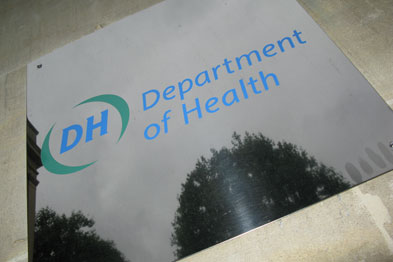
Life sciences boost from government
pharmafile | March 31, 2014 | News story | Research and Development, Sales and Marketing | DoH, NHS, UK, government, life sciences, medcity
The UK government is to launch an improved offering for the life sciences sector by combining the functions of the Department of Health and the Department of Business, Innovation and Skills.
The new Office for Life Sciences will be more than the sum of its parts, the government promises, calling it a ‘joint and expanded’ effort.
Nicole Mather, currently a director in Deloitte’s Healthcare and Life Sciences practice, has been appointed director of the new entity and will take up her post on 22 April.
Her remit will be to “make the UK the best place to invest in life sciences research” and to “take advantage of the UK’s science base and unique NHS to improve healthcare and contribute to economic growth”.
Mather said: “I look forward to working with colleagues across government, industry, academia and charities to drive growth through the expansion of the life sciences industry in the UK, supporting increased joint working with the NHS and improving access to products that make a quantifiable difference for patients.”
The government has long professed to value life sciences, publishing a strategy for the sector and a policy on “increasing research and innovation in health and social care” a year ago.
In the latter, it drew the link between encouraging health research and the use of new technologies and their assistance in developing new, more effective treatments for NHS patients.
“In a difficult financial environment, we need new approaches if we’re going to improve quality and productivity,” the policy document explained. “We think we can get more out of health and social care services if we encourage innovation and base more decisions on evidence about what works.”
It highlighted the importance of research to growth in the UK’s life sciences industry and reiterated its desire to make the UK “the best place in the world for health research”.
The government points to other policies which it has put in place to boost innovation, such as 2011’s innovation, health and wealth, and its creation of the Academic Health Science Networks.
Life sciences therefore appears high on the government’s agenda, and the departmental restructure follows the announcement of the creation of MedCity next month.
Set to be launched by London mayor Boris Johnson on 8 April, the capital is looking to create a ‘golden triangle’ in medical and life sciences research, linking London with Oxford and Cambridge.
The plans, first announced last year, propose a new district based around Euston Road in north-east London, near the University College Hospital and the Wellcome Trust, and the Francis Crick Institute, a medical research centre currently under construction.
The MedCity (aka The Medical City) scheme aims to forge links with academic institutions outside London and to build a global brand that attracts investment. It currently enjoys the backing of a number of senior NHS figures and London’s three academic health science centres: King’s Health Partners, Imperial College Healthcare and UCL Partners.
The mayor’s office will seek investment from pharma companies as well as build on interest from venture capital. It has already seen more than £1.1 million in funding from the Growing Places Fund, which will be in place for three years.
Adam Hill
Related Content

Digital mental health technologies – a valuable tool in supporting people with depression and anxiety
The potential benefits of digital mental health technology for managing depression, anxiety and stress, together …

A community-first future: which pathways will get us there?
In the final Gateway to Local Adoption article of 2025, Visions4Health caught up with Julian …

The Pharma Files: with Dr Ewen Cameron, Chief Executive of West Suffolk NHS Foundation Trust
Pharmafile chats with Dr Ewen Cameron, Chief Executive of West Suffolk NHS Foundation Trust, about …






